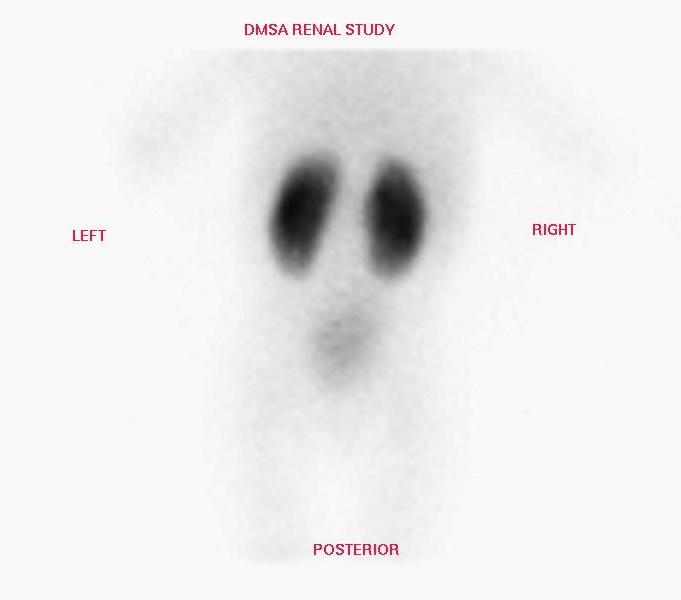


DMSA Scan:
DMSA, or dimercaptosuccinic acid, is a radioactive substance (called a tracer) that is infused into a vein to allow it to enter into kidneys. It is distinguished by gamma cameras and empowers a sweep to be taken of within the kidneys. The output indicates which regions of the kidneys are working ordinarily and which zones have been harmed.
Preparation for DMSA SCAN:
There is no extraordinary preparation required to carry out a DMSA scan. You can be on your regular diet. It is always better that you inform your doctor in case you are pregnant or are breast feeding. Also, inform the radiology staff before you are proceeding for the scan. The doctor will let you know if you need to stop breast feeding for a short time.
DMSA Scan process:
A small injection of radiopharmaceutical will be injected into the vein of your arm. A gamma camera will be used immediately to click the pictures to check whether the kidneys are producing the urine in a normal manner. It will also reveal which part of the kidney is damaged. After two to four hours the scan will be carried out post which you can resume your normal activities.
Sometimes there is a delay after the injection is given and the images are taken. This is done to allow the kidneys to absorb radiopharmaceutical. This radiopharmaceutical will later be eliminated from your body in the form of urine. You should ensure that you drink plenty of fluids to allow urine formation. The urine color will not change irrespective of the presence of radioactive tracer.
Risks associated with DMSA Scan:
There isn’t any risk associated with DMSA Scan.
Benefits of DMSA Scan:
It allows find out if there is any problem with the functioning tissue of the kidneys. The radiopharmaceutical will not be attached if the kidneys are damaged. The scan will also allow the doctors to find out the relative functions of both the kidneys whether one is performing better than the other or both are at the same pace.
Who carries the DMSA Scan:
It is carried out by nuclear medicine technologists who are certified and well-trained to carry out the tests. The images will then be sent to nuclear medicine specialists who will then diagnose the problem and prepare the report. This report will further be shared to the doctor for medications and treatments.
Kidney problems are common in these days and it is better to get examined as and when the problem arises. Also, one should ensure that the tests are carried out at a reputed diagnostic centre so that the reports are accurate. Do follow the doctors’ advice post the scan so that you recover soon.